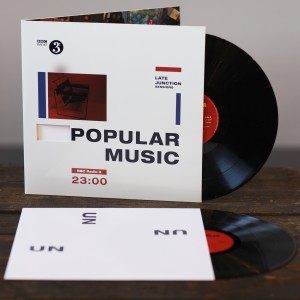


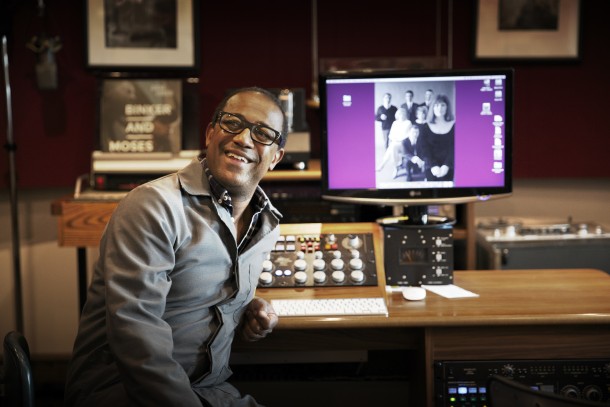
Each month, we are focusing on a record label founded by an active digger. We are stopping with Darrel Sheinman, the owner of Gearbox Records, founded in 2009. He uses the British Library Sound Archive to unearth unknown and unreleased jazz music, but he also makes possible special projects, amazing box sets, and rare records thought by outstanding artists as Kate Tempest.Time to go back to the complete story…
When did you start digging records?
When I was young… in fact, very young. My father was a musician and always played great music around the house. Dave Brubeck’s “Time Out” and Miles Davis’ “Kind of Blue” are among my earliest musical memories and are major parts of the soundtrack to my childhood.
What Lps did you buy at first? Do you still listen to them?
As a teenager I started playing drums and learnt to play by drumming along to records like The Police’s “Outlandos d’Amour”. I was heavily into The Sex Pistols, Television, The Clash, Joy Division and the hardcore scene, especially The Dead Kennedys. But I eventually found my way back into jazz and the first original Blue Note that I bought was Johnny Griffin’s “A Blowin’ Session”, a record that for me typifies that hardbop feel more than anything else.
Do you have a particular style or favorite period?
It has to be Hard Bop from the 1950’s and 1960’s when records were as beautiful to look at and listen to as well as being beautifully recorded and produced.
Are you still digging’, buying vinyl, visiting record shops?
Of course, once vinyl gets in your blood you’re hooked for life. The endless search goes on for the mint copy of records like The Jazz Workshop’s “Mezare Israel Yekabtzenu” or Chivo Borraro’s incredible “El Nuevo Sonido del Chivo Borraro”. I recently found some Tubby Hayes acetates which are probably his earliest recordings and find it hard to walk past a shop or charity store just in case there’s something waiting to be found. At Gearbox we have built a close relationship with many of the stores around the world that sell our records, and whenever I can I get out to meet them and find out what’s really happening.
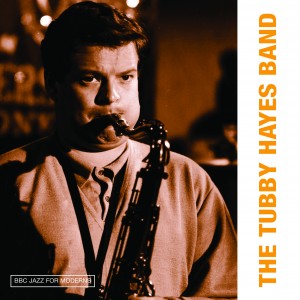
Take Your Partners For The Blues
What was your first release on Gearbox?
It was The Tubby Hayes Band “Jazz For Moderns”, an incredible 1962 Maida Vale Studios session for the BBC radio show Jazz for Moderns that had never been released before on any format. It’s won a number of awards and together with the second Gearbox release – another Jazz For Moderns set, this one from 1962 with Joe Harriott – proved that the label could be a successful enterprise and not just a part-time hobby.
Why did you choose this name: Gearbox?
That’s very simple, I’m a petrolhead and a turntable is after all just a simple gearbox.
What could be your editorial/esthetic line?
Great music with a jazz-rooted soul, recorded live in the studio or in concert and straight to tape. We want Gearbox to stand for the best in vinyl from creation to playback, with our records sounding the best they possibly can. Having our own vinyl mastering and cutting facility with the best analogue equipment makes this possible. As for playback, we’ve designed and are building our own turntable with some unique features which will be launched in 2017.
What is the Gearbox Record you are most proud of?
There’s more than one – Binker and Moses “Dem Ones” because it’s a wonderful sounding direct to stereo tape recording that has not only captured the imagination of a younger audience but also given this saxophone and drums duo a major boost in their professional career. And there’s Applewood Road, again recorded direct to stereo tape and just included in the Sunday Times Best Albums of 2016. I’m proud of it because it proves that a simple approach to recording without resorting to over produced techniques makes the emotional connection between artist and listener so much stronger.
Did you have any references labels?
Blue Note set the standards, and we use the same Scully lathe and Westrex amps and cutting heads that Rudy van Gelder used.
The Ronnie Scott has seen many great musicians. Some sessions recorded in this club have been in the jazz history. You have found some yourself, as recently a performance of Yusef Lateef … What are the next references in terms of live?
We have just completed a project supported by the Heritage Lottery Fund, making available a number of rare and never-heard-before recordings from London jazz clubs during the 1960’s. 20 vinyl copies of these 15 recordings are being given to various archives and educational establishments, but are free for everyone to listen to at http://www.londonjazzarchive.org. Our next release live from Ronnie’s will be a new recording by Nittin Sawhney following on from last year’s James Taylor Quartet album. We’re just as interested in new music as previously unreleased archive cuts.
Other lives also on the catalog, like this amazing gig in Montreux with Nucleus and Leon Thomas. How did you get access to these tapes?
These were the original 1/4” masters and the performance was licensed in the normal way. We are aware of a CD bootleg of a radio broadcast that was made many years ago, but it was certainly not from these masters.
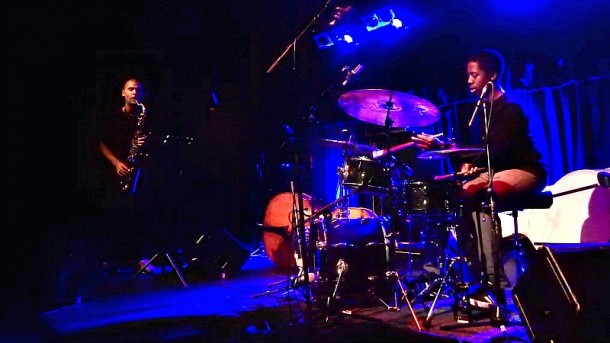
Binker and Moses
Black Ave Maria
Another part is the BBC sessions… Can you tell more about this series? How did you dig that «direction»?
The initial idea for starting Gearbox came after seeing a live performance by N.E.R.D. I wanted to put the gig out live on the best medium possible which is vinyl. But I had no track record in music and was unable to get the rights. So I turned my attention to jazz, as the British jazz world had not really been released thoroughly and done properly on vinyl. I managed to get the rights quite easily and those first two releases from Tubby Hayes and Joe Harriott established a strong relationship between Gearbox and the BBC licensing department. In fact, our studio is now one of a handful of official BBC dub houses, trusted to work directly with their master tapes. There have been occasions where we’ve been researching a BBC radio session and found that the only tape in existence is in the British Library, and have been happy to fill in the gaps.
Are there any other references coming from the BBC studios?
There certainly will be, we’re finding out about new radio and TV sessions all the time. But until everything’s cleared and prepared we better keep our powder dry in case we jinx things.
How do you manage to identify previously unreleased from the original radio broadcast tapes? Is it hours and hours of listening?
A lot of listening, certainly. A lot of questions too, and if we don’t know the answers, we’re very lucky in knowing just who to ask.
And in all this research, there was also some disappointments. Some words about this aspect?
Of course, the master tape might be in a too poor condition, the clearances raise an unforeseen issue or there’s a problem with the repertoire. But whatever the problems, one has to keep going – if this work was easy, then everyone would be doing it!
Have you received many negative answers on some of the LP’s, artists, unreleased tapes, you were trying to issue/reissue?
Some, but over the last seven years we’ve built a good reputation for making the best records we can, and doing the artists and their families proud. So in general, people are very happy to work with us.
Your work focuses a great deal on English jazz: what special feature? a particular sound ? Is it the same today as yesterday?
Hard bop is very important to us, if you look closely on every cover you’ll see “still hard boppin’” written on the spine. British jazz has always had something special as well as producing some remarkable musicians who have been more influential internationally than is often realized. Take trumpeter Ian Carr, for example, whose pioneering 60’s electric jazz was certainly an influence on Miles Davis’ decision to work with electric instrumentation.
Sebastian Rochford, Shabaka, Soweto Kinch, Neil Cowley, Yussef Kamaal, Get The Blessing, your own Binker And Moses, etc… How do you explain the new wave of English jazz, more and more people for ten years?
A number of things, great jazz educators, a strong sense of community identity and powerful and charismatic artists who showed the way. This is a very exciting period, and will be recognised as such in the future…
Is there more stylistic diversity than in the past? And what unity behind all this eclecticism?
Yes, the barriers between genres are lower than ever before. It’ s not a question of experimentation as it was in the 60’s and the 70’s, more a natural reflection of the diverse culture of UK which is reflected throughout the arts. These musicians know who they are and what they’re doing, it’s all natural.
Can we link the return of the live and the return of the vinyl? Does it work together, by pair?
Yes, they both show a real appreciation of music as the main course, not just a side dish. Vinyl requires a ritual – take the record out of the inner sleeve, clean it, carefully drop the needle and listen, not just hear. Live shows also require the audience’s full attention sharing the moment with the musicians.
You seem to attach great importance to analog sound, audiophile quality. Some, a common idea at least, believe that live sessions are not the best source to record a disc. What do you say to them?
We like analog simply because we think it sounds better. We like recording live because it’s when the magic happens, and well recorded, it sounds wonderful. But each to his own, I understand people using the studio as an instrument and the art of multitracking and mixing. It’s just not the Gearbox way.
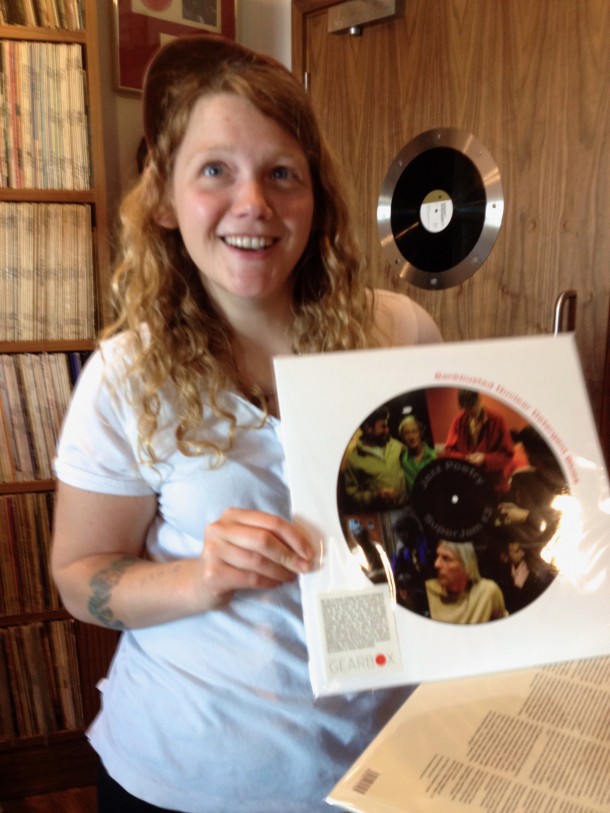
Kate Tempest
Where The Heart Is
You release not only jazz but also poetry. Among these Kate Tempest develops a street poetry, quite singular storytelling. How did you meet her? What has touched you in her words, her way of saying them?
I was introduced to Kate Tempest’s work by legendary Straight No Chaser publisher Paul Bradshaw. I was completely blown away with her presence, artistry and the sheer power of personality and knew I had to have her on Gearbox! We became involved in recording her remarkable Brand New Ancients that had been touring the UK and released the vinyl double LP. She’s a remarkable artist who’s going to be a major force for many years to come.
Kate Tempest is on the Late Junction collaboration sessions («to pair people from different musical backgrounds, which have never been worked together, and put them into the studio for a joint work on new pieces of music»). A good idea, but is this an easy project? What were the good surprises? The unexpected results?
It’s been a straightforward project as well as a great pleasure to make, especially working with Nick Luscombe who compiled the project with me. All the collaborations had already been recorded and broadcast on Late Junction, so it was just a question of choosing those that made the most cohesive and enjoyable album. The sound quality of the recordings was wonderful – that’s BBC Maida Vale Studios again – and we decided to cut at 45rpm to make the most of this.
You have also published in the series Jazz Poetry Bundle: Ballad Of The Nocturnal Commune, Michael Horovitz accompanied by Damon Albarn, Graham Coxon & Paul Weller. One shot?
The “Bankbusted Nuclear Detergent Blues” and 7” single “Ballad Of The Nocturnal Commune” were projects that the poet Michael Horovitz brought to us when we were preparing the first of the Jazz Poetry Superjam projects, the “Blues For The Hitchhiking Dead” box set. We’ve now put all three together in a bundle, but they’re still available separately. Also nice to have the common denominator of Michael with the musicians of the 60’s (Stan Tracey, Bobby Wellins, Jeff Clyne) to the musicians of today (Damon Albarn, Graham Coxon, Paul Weller).
You prefer objects (45’s boxset, limited edition), special projects. A way to retain the audience? To maintain the attention in front all the others issues?
There is no plan, it’s just to release in the format that matches the project. The Jazz Poetry box set featured two albums and a large format booklet so it needed a box to keep the assets together. We’re stopping limited editions though, that’s become too much of a marketing cliche, so we will repress as long as there’s a market and we have the rights to do so.
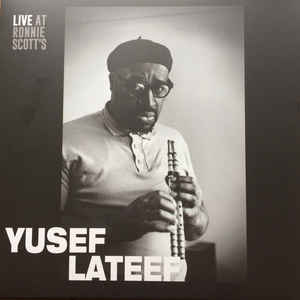
Blues For The Orient
Do you think your audience is becoming more faithful over time?
Yes indeed, there’s a growing number of people who buy everything we release, and we have a strong community who let us know what they think about our records and our philosophy.
Nowadays, there are many LP labels who follow this model, I mean more quality even if it’s more expensive… but in same time, there are also another «new» LP market, with major companies come-back and other labels, who prefer to sell cheaper. Is it the (re)creation of two camps for the LP?
Quality costs money. We use the highest quality materials, lined inner sleeves, resealable bags, the best pressing plant (Optimal Media) and were making relatively small runs. We could make records cheaper, but they wouldn’t be as good quality.
There are more and more reissues of old LP’s, and more and more record labels (major or indie) now release their new artists on LP, or EP. Do you think that the LP reissue market could ever reach saturation point?
Thankfully we don’t do reissues (except for the Nico that was only available on vinyl for a short time in the 80’s), but there are only so many records that can be reissued from original master tapes or high quality files. It’s important that people know what they’re buying, the source for the music, how it was cut and how well manufactured. What will hurt the vinyl market is bad vinyl, and there’s quite enough of that already. This isn’t a marketing exercise, this is about vinyl being the best medium for listening to music.
What are your other next releases?
Our major release for the first quarter is a double album from Binker and Moses entitled “Journey to the Mountain of Forever”. The first disc features the duo, the second disc features friends Evan Parker, Byron Wallen, Tori Handsley, Sarathy Korwar and Yussef Dayes. The sessions took place over two days resulting in 10 reels of tape filled with over five hours of music. It’s a major step forward from “Dem Ones” and a labour of love for Gearbox. We will have a previously unreleased Sun Ra solo piano 7” for Record Store Day, another 7” single from Cooper-Moore and Mad King Edmund, a live album recently recorded at Ronnie Scott’s from Nitin Sawhney and a fabulous unreleased Thelonious Monk concert from 1963.
What is the LP you dream of issuing/reissuing?
It would have to be something that no one knew existed until the very moment the tapes were discovered. Or, if it was a reissue, it would be a privilege to cut and release “Kind of Blue” from the original 3 track master tape, especially as we have one of the very few valve 3 tracks 1/2 inch machines in existence to do it the justice it deserves.
http://www.gearboxrecords.com
